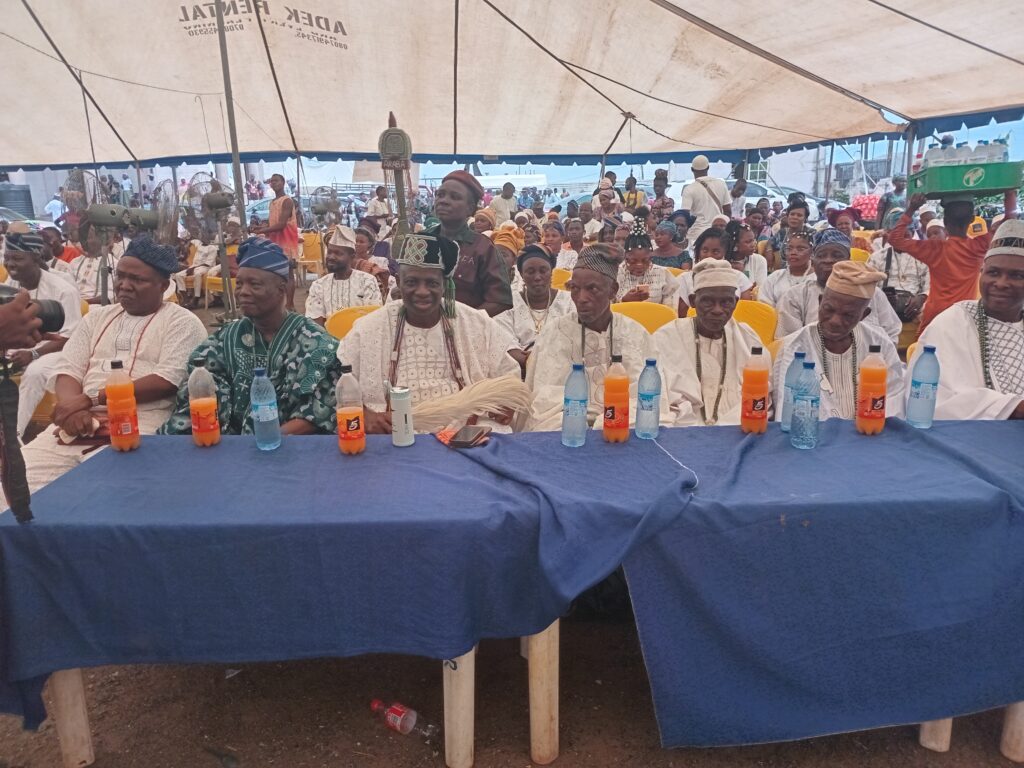
The Araba and Oluisese of Ibadanland, Ifalere Odegbemi Odegbola II has clarified that the concept of Ela in the Ifa tradition is distinct from references to Ela in other religions.
Speaking at this year’s Ela Mimo Day celebration in Ibadan, Odegbola emphasized that Ela’s origins and significance within Ifa predate many world religions.
According to him, Ela in Ifa is not a mere spiritual entity, but a unique figure whose coming was foretold in the sacred Odu Ifa corpus, specifically in Ejiogbe.
“Ela is a human whose birth was divinely predicted. His mother, Oyigi, was barren for years and, upon seeking guidance from Ifa, was told she would give birth to a gifted child without any union with a man.”
“This came to pass, as she later conceived and gave birth to Ela in the bush without pain, and the child cut his own umbilical cord even when his mother was calling for help, Odegbola recounted.
He explained that the name Ela was given because the leaves of the Ela tree were used in the concoction that aided Oyigi’s miraculous pregnancy and delivery.”
“Afterward, Oyigi entrusted Ela to Orunmila, the revered sage of Ifa, for mentorship. Ela became Orunmila’s first apprentice, known for his truthfulness and wisdom. Before Orunmila’s departure from the earthly realm, he instructed followers to always seek knowledge from Ela, who then succeeded him.”
“Ela did not die; he ascended to heaven with a chain, leaving instructions for consultation. In the divine order, Ela seeks Orunmila, and Orunmila seeks the Almighty God for the benefit of humanity,” Odegbola said.
He added: ‘Ela’s role in Ifa is central, serving as the Orisa of wisdom, knowledge, and destiny. In Yoruba cosmology, Ela is regarded as the divine intermediary between humanity, Orunmila, and Olodumare, the supreme creator. Through the Ifa divination system, Ela’s wisdom is accessed to guide individuals and communities on matters of destiny, ethics, and spiritual growth.
Odegbola stressed that these attributes make Ela in Ifa fundamentally different from how Ela is perceived or referenced in other faiths. “Ela’s teachings and guidance are embedded in the Odu Ifa, providing a moral and ethical compass for the Yoruba people,” he added.
The annual Ela Mimo Day, which began with worship at Ile Ose Meji in Oja Oba, witnessed a large turnout of Isese practitioners. The event also marked the retirement of Oloye Awodele Aworemi as Asiwaju Isin Agba and the ascension of Oloye Awokunle Adekanbi as the new Asiwaju Isin Agba, among others.
The grand finale of this year’s Ela Mimo Day took place at the ancient Mapo Hall, featuring storytelling, music, and dance.
This significant event in Yoruba religion honors Ela’s enduring legacy as a source of divine wisdom and guidance.
Araba and Oluisese of Ibadanland also expressed his appreciation to the organizers, including Omo Oba Fatoyin Sekeokun, Obaela Agbaye, Ominira Omo Oodua, Baba Abiodun Bello, Isese practitioners both in Nigeria and in the Diaspora, as well as all Ifa priests (Babalawos).